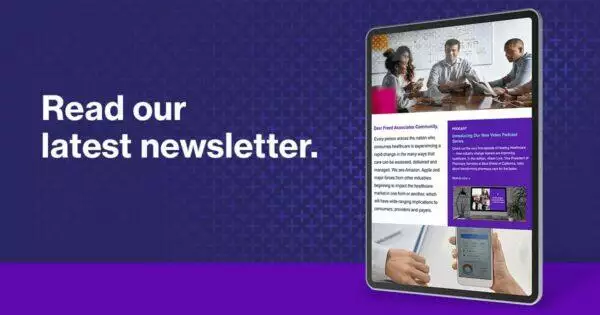Improving the Healthcare Payment Reconciliation Processes
A leading healthcare system needed to urgently address its reconciliation processes. Freed worked with them to improve their financial accuracy and proficiency, which has served as a catalyst to implement additional operational improvements.

Problems With Healthcare Payment Reconciliation
In healthcare finance, payment reconciliation is highly complex. Payments are made at various stages of treatment and settlement is provided by multiple health plans, third parties and patients. When problems in healthcare payment reconciliation arise, it results in unposted cash and presents a serious liability issue for health care organizations. Unposted cash hinders an organization’s ability to accurately report revenue, make projections and understand its financial health.
A leading healthcare system needed to urgently address its payment reconciliation processes. The system’s hospital, medical group and finance teams used different processes to identify bank deposits and reconcile payment posting. This often resulted in reporting discrepancies that delayed month-end closing and introduced risk or inaccurate revenue recognition. Simultaneously, as part of implementing a cash management module (CMM) within Epic, the health system sought to merge the bank accounts of its medical group and hospital, further complicating revenue recognition efforts.
The health care system tasked Freed Associates with crafting and implementing a consistent, enterprise-wide remittance reconciliation process.
Improving the Remittance Reconciliation Process
At the outset, Freed’s overarching goals were to improve the financial reporting, accounting and accuracy of the client’s remittance posting and tracking.
Freed embarked on a three-fold strategy to enhance the client’s remittance reconciliation processes, focused on:
- Examining and improving payment posting workflows
- Implementing process improvements to improve posting accuracy and timeliness
- Establishing a new posting team management structure, including new posting policies and procedures
Implementation
Freed assembled a project design and steering committee, which included representatives from the client’s Finance, Information Systems (IS) and Patient Financial Service (PFS) departments. With Freed’s oversight, this group collaboratively identified multiple improvement opportunities in payment processing workflows.
In accordance with the project’s goals, Freed outlined and implemented the following solutions:
- Created and implemented new payment tracking processes – Based on payment posting workflow best practices, established a new and consistent reporting and reconciliation process for both the medical group and hospital.
- Created a new electronic remittance advice (ERA) file – Implemented a new reconciliation and posting process via a new ERA file reporting system. With this, the client could now reconcile checks and identify the correct accounts receivable system for posting, as well as resolve issues in professional billing self-pay credits.
- Consolidated fundamental payment reconciliation processes – 12 professional billing payers were consolidated into a joint bank account to support Epic’s single billing office financial model. Additionally, the client switched credit card processing providers, after rigorously vetting and evaluating multiple vendor candidates.
- Coordinated new system design and workflows – Created new deposit file specifications, obtained and validated new lockbox deposit files. Established a new secure process for daily online transfer of file data.
- Implemented Epic’s Cash Management Module (CMM) – Led design and implementation of the Epic CMM, trained end-users, managed issue tracking, resolution and escalation. Developed custom reports (using SAP Business Objects).
- Created a new staffing analysis tool – With its new staffing analysis tool, the client could align current and future staffing needs across all relevant departments.
- Trained payment posters and managers – Created a new training curriculum and manual, based on CMM. Conducted nine training sessions and follow-up practice sessions with payment posters and their managers.
Results
The health system realized multiple benefits including:
- Enabled the completion of accurate, timely monthly reconciliation processes. Improved the health system’s reporting and forecasting abilities and increased the efficiency of finance operations
- Eliminated $180,000 in annual revenue/payment cycle software costs by switching to Epic’s built-in CMM
- Improved working relationships and employee satisfaction among finance, IS and PFS staff members
Conclusion
By significantly improving the healthcare system’s payment reconciliation processes, Freed helped the organization eliminate reporting discrepancies, improve revenue recognition, enhance financial operational efficiency and create more harmonious relationships among the departments involved with remittance reconciliation. These enhancements have allowed the healthcare system to enjoy increased financial accuracy and proficiency, and have served as a catalyst to implement additional operational improvements.

